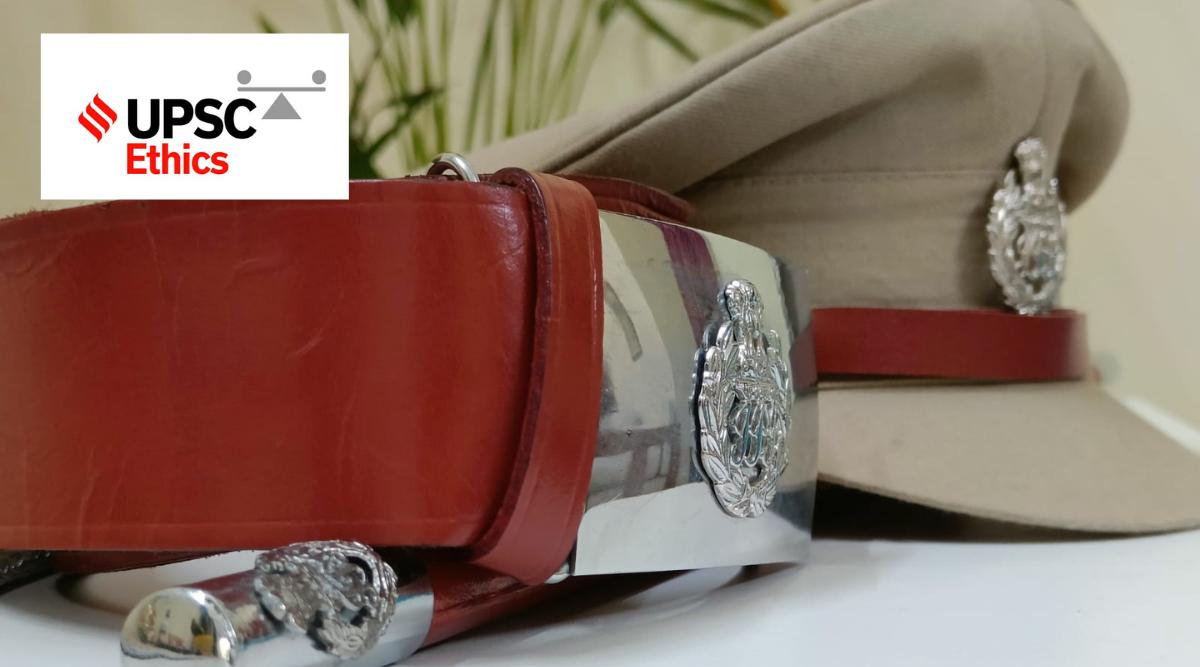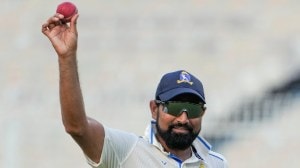Ethics pervades all facets of human life. But in policing, there is an additional layer of ethical decision-making that most citizens do not have to engage in. The role of the police has an ethical or moral dimension which is not found in most other occupations.

According to Professor Seumas Miller, retired IPS officer Sankar Sen, IPS officer Prakash Mishra, and John Blacker in their book, Ethical Issues in Policing in India, life and liberty are fundamental moral values and are held to be so in all human societies, and the police routinely have to decide whether to arrest, i.e., whether or not to take away someone’s freedom, and at its extreme, sometimes they must decide whether or not to take away someone’s life.
According to these authors, while making any moral decisions, the police have to consider a complex array of actions. They have to consider the goodness and badness of a person before they can consider whether their actions are wrong. For any action taken by a person, they have to see the motivation and intentions of the action and its consequences. They have to do their jobs in accordance with the laws that are in place at that time, they say.
They say that the police may be required to face danger or hostility in order to do their duty, and predictably, in the course of their work, police officers are likely to experience a range of emotions including fear, anger, suspicion, excitement, and boredom to a far greater extent than people in other occupations. To act effectively as police, they must be able to respond to these emotions in the right way, which requires them to be emotionally intelligent.
Good ends and problematic means
The National Human Rights Commission, 1998, has said that in a democratic society, the police must be “low in authority and high in accountability.” Also, the police ethics definition and police institutions exist to serve the highest of moral purposes, to protect the rights to life, liberty, and property of citizens in a democratic polity. So, the protection of human rights is a core police function.
However, authors of Ethical Issues in Policing in India say that the means routinely used by the police necessarily include harmful methods, such as coercion and deception. This apparent inconsistency between good ends and problematic means sets up a dangerous moral dynamic not simply in Indian policing but in police work throughout the world, they add.
Story continues below this ad
The National Human Rights Commission (1998) says that police practice must comply with carefully worked out ethical principles that appropriately balance the moral rights of victims with those of suspects. For example, the use of deadly force by police to protect citizens and themselves must be constrained by the ethical principles of necessity and proportionality.
Rule of law is replaced by rule of politics?
Professor David H. Bayley of Princeton University, in his paper Police and Political Development in India, says that the rule of law in India, the frame on which justice hangs, has been “undermined by the rule of politics.”
The major reasons for the politicisation of the police, according to the Padmanabhan committee, is the lack of a proper tenure policy for the posting of officers at different levels and the arbitrary transfers and postings that have been used for political interest.
Story continues below this ad
Bayley and the authors of Ethical Issues in Policing in India say that the rule of law is being replaced by the rule of politics, which is a cause of concern for establishing good governance in the country. According to them, mindless denigration of the police is irresponsible because it is counterproductive in terms of assisting those honest and competent police officers who are trying to renovate Indian police institutions. Moreover, such denigration hinders rather than helps the public to understand the genuine difficulties that the police confront and, thereby, assist the police in their important work, they add.
In Ethical Issues in policing in India, its authors also say that politicians use transfer and suspension as weapons to tame police officers. They say that while suspension functions as a form of humiliation, a transfer causes financial loss and disruption to the policeman’s family. In many cases, transfers are effected without even consulting the relevant senior police officer.
They also say that these punitive measures affect the morale of the police and damage the chain of command within the organisation, thereby undermining the authority of those of their superiors who might be honest, competent, and fair-minded, but not sufficiently supportive or politically useful.
A promise yet to be fulfilled
Story continues below this ad
The Shah Commission of Inquiry in its report (Report No. II, April 26, 1978) recommended that the government should seriously consider the viability and desirability of insulating the police from the politics of the country and employing them scrupulously on police duties that alone by law are intended to stop political interference. To protect the police from outside influences and influence, the National Police Commission also offered a number of important suggestions.
The Government of India established a committee under the chairmanship of former attorney general Soli Sorabjee to frame a Model Police Act. The committee submitted its recommendations on October 30, 2006, “to enable the police to operate as an efficient, effective, people-friendly, and responsive agency.” In general, the committee adhered to the precedent established by the Supreme Court in its Prakash Singh decision. The Government of India promised in Parliament that a Model Police Act based on the recommendations of the Sorabjee Committee would be introduced in the near future. This has not yet occurred.
The urgent need of the hour, according to retired IPS officer Sankar Sen, is to depoliticise the police and insulate it from extraneous pulls and pressures, as recommended by the National Police Commission, and re-emphasise the Supreme Court directives in Prakash Singh’s case.
For any queries and feedback, you can contact priya.shukla@indianexpress.com
The UPSC KEY Indian Express is now on Telegram. Click here to join our channel and stay updated with the latest Updates.

































